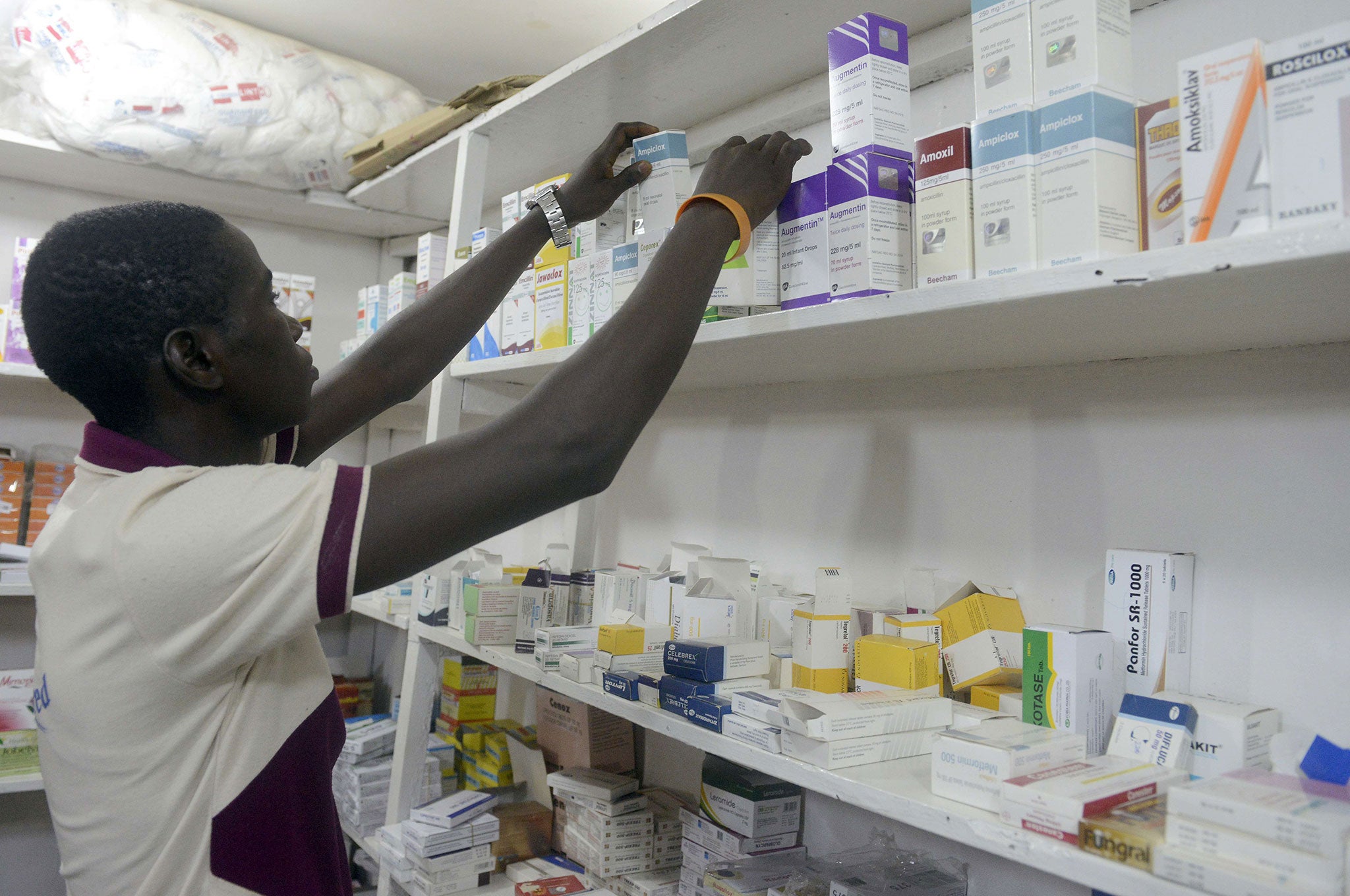Your support helps us to tell the story
From reproductive rights to climate change to Big Tech, The Independent is on the ground when the story is developing. Whether it's investigating the financials of Elon Musk's pro-Trump PAC or producing our latest documentary, 'The A Word', which shines a light on the American women fighting for reproductive rights, we know how important it is to parse out the facts from the messaging.
At such a critical moment in US history, we need reporters on the ground. Your donation allows us to keep sending journalists to speak to both sides of the story.
The Independent is trusted by Americans across the entire political spectrum. And unlike many other quality news outlets, we choose not to lock Americans out of our reporting and analysis with paywalls. We believe quality journalism should be available to everyone, paid for by those who can afford it.
Your support makes all the difference.Liberian doctors are set to be the first Africans to receive an experimental Ebola treatment, ZMapp.
Public anger has been growing that the serum, which is in the early stages of development and has not been tested on humans, has only been used to treat Westerners so far.
Two American aid workers and a Spanish missionary priest received the drug and its manufacturer, Mapp Biopharmaceutical, has said its supply is now exhausted.
The announcement came as the World Health Organisation considered ethical questions about who should get access to an experimental drug in an emergency.
There is no proven treatment for Ebola but basic supportive care, like keeping patients hydrated, maintaining their blood pressure and treating any infections can make a difference in survival.
The Ebola outbreak has so far killed more than 1,000 people in Sierra Leone, Liberia, Guinea and Nigeria and ZMapp is one of several drugs in development to attempt to stop its spread.
Q: What is this drug?
A: Called ZMapp, it is a cocktail of specially engineered antibodies designed to target and inactivate the Ebola virus.
Q: What do we know about whether it works?
A: Very little. Various antibodies have been tested in small numbers of monkeys but not people. In one study, 43 percent of treated monkeys survived when the drug was given after the animals showed symptoms.
Q: Why isn't ZMapp being tested more widely to find out if it works in people?
A: There's not enough available. The antibodies are grown inside tobacco plants and then extracted and purified, a slow process. US officials have estimated that only a modest amount could be produced in two or three months, unless some way to speed production is found.
Q: What does it mean that the two American aid workers who received the drug are reported to be slowly improving?
A: Top US health officials stress that there's no way to know if the drug really helped, or if those two patients would have been among the 40 percent of people who are surviving this outbreak anyway. Without human studies, there also isn't any way to know if the drug might harm instead of help.
Q: How were the Americans and Spanish priest chosen to get some of those limited doses, rather than Africans?
A: The international relief organisation Samaritan's Purse and Emory University Hospital requested that the manufacturer provide some of the drug for the two Americans, and the manufacturer agreed. As for the Spanish missionary priest, it wasn't clear exactly how Spanish officials obtained a dose that apparently was in Geneva. The priest also was infected in Liberia and is in isolation at a Madrid hospital.
Q: How is Liberia getting the drug?
A: The U.S. Department of Health and Human Services said it had helped connect Liberia with the manufacturer. “Since the drug was shipped for use outside the US, appropriate export procedures had to be followed,” the statement said.
Q: Are any other drugs in the pipeline?
A: Canada's Tekmira Pharmaceuticals Corp is developing a drug that targets Ebola's genetic material. The FDA had halted a small safety study with questions about a reaction in healthy volunteers. Last week, Tekmira announced that FDA had modified its restriction, clearing a roadblock to possible experimental use in infected patients. The company said at the time that it was “carefully evaluating options.”
A handful of other companies are in earlier stages of drug development and a possible vaccine to prevent the disease is expected to begin first-stage safety studies sometime in the autumn.
Q: If experimental drugs won't stop the outbreak, what will?
A: Experts say old-fashioned public health measures: rapidly finding and isolating the sick, quarantining those exposed and educating the public on how to avoid the risk of infection. Ebola is spread through direct contact with bodily fluids of sick patients. Two main drivers of the outbreak are thought to be improper infection control during patient care and traditional but risky burial practices that see mourners handling bodies that are still infectious.
AP
Subscribe to Independent Premium to bookmark this article
Want to bookmark your favourite articles and stories to read or reference later? Start your Independent Premium subscription today.

Join our commenting forum
Join thought-provoking conversations, follow other Independent readers and see their replies
Comments